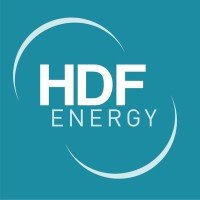European Commission presents REPowerEU plan
REPowerEU plan aims to reduce dependence on Russian fossil fuels and fast forward the green transition.

The European Commission has presented the REPowerEU Plan, its response to the hardships and global energy market disruption caused by Russia’s invasion of Ukraine.
There is a double urgency to transform Europe’s energy system: ending the EU’s dependence on Russian fossil fuels, which are used as an economic and political weapon and cost European taxpayers nearly €100 billion per year, and tackling the climate crisis. By acting as a Union, Europe can phase out its dependency on Russian fossil fuels faster. 85% of Europeans believe that the EU should reduce its dependency on Russian gas and oil as soon as possible to support Ukraine. The measures in the REPowerEU Plan can respond to this ambition, through energy savings, diversification of energy supplies, and accelerated roll-out of renewable energy to replace fossil fuels in homes, industry and power generation.
The EU has been working with international partners to diversify supplies for several months, and has secured record levels of LNG imports and higher pipeline gas deliveries. The newly created EU Energy Platform, supported by regional task forces, will enable voluntary common purchases of gas, LNG and hydrogen by pooling demand, optimising infrastructure use and coordinating outreach to suppliers. As a next step, and replicating the ambition of the common vaccine purchasing programme, the Commission will consider the development of a ‘joint purchasing mechanism’ which will negotiate and contract gas purchases on behalf of participating Member States. The Commission will also consider legislative measures to require diversification of gas supply over time by Member States. The Platform will also enable joint purchasing of renewable hydrogen.
The EU External Energy Strategy adopted today will facilitate energy diversification and building long-term partnerships with suppliers, including cooperation on hydrogen or other green technologies. In line with the Global Gateway, the Strategy prioritises the EU’s commitment to the global green and just energy transition, increasing energy savings and efficiency to reduce the pressure on prices, boosting the development of renewables and hydrogen, and stepping up energy diplomacy. In the Mediterranean and North Sea, major hydrogen corridors will be developed. In the face of Russia’s aggression, the EU will support Ukraine, Moldova, the Western Balkans and Eastern Partnership countries, as well as our most vulnerable partners. With Ukraine we will continue to work together to ensure security of supply and a functioning energy sector, while paving the way for future electricity and renewable hydrogen trade, as well as rebuilding the energy system under the REPowerUkraine initiative.
It sets a target of 10 million tonnes of domestic renewable hydrogen production and 10 million tonnes of imports by 2030, to replace natural gas, coal and oil in hard-to-decarbonise industries and transport sectors. To accelerate the hydrogen market increased sub-targets for specific sectors would need to be agreed by the co-legislators. The Commission is also publishing two Delegated Acts on the definition and production of renewable hydrogen to ensure that production leads to net decarbonisation. To accelerate hydrogen projects, additional funding of €200 million is set aside for research, and the Commission commits to complete the assessment of the first Important Projects of Common European Interest by the summer.
Under the current MFF, cohesion policy will already support decarbonisation and green transition projects with up to €100 billion by investing in renewable energy, hydrogen and infrastructure. An additional €26.9 billion from cohesion funds could be made available in voluntary transfers to the RRF. A further €7.5 billion from the Common Agricultural Policy is also made available through voluntary transfers to the RRF. The Commission will double the funding available for the 2022 Large Scale Call of the Innovation Fund this autumn to around €3 billion.
